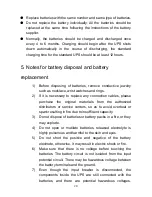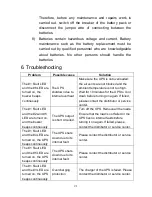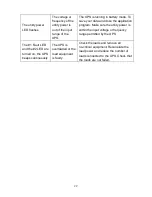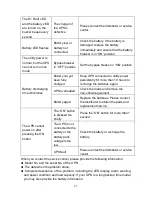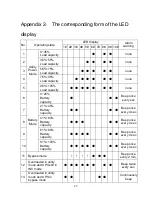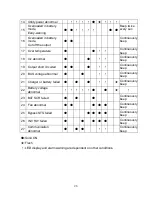
11
2.4 Parallel operation
1. Brief introduction of the redundancy
N+X is currently the most reliable power supply structure. N
represents the minimum UPS number that the total load needs; X
represents the redundant UPS number, i.e. the fault UPS number
that the system can handle simultaneously. The bigger the X is, the
higher reliability of the power system is. For occasions where
reliability is highly depended on, N+X is the optimal mode.
As long as the UPS is equipped with parallel cables, up to 3 UPSs
can be connected in parallel to realize output power sharing and
power redundancy.
2. Parallel installation
1)
Users need to opt a standard 25-pin communication cable,
which should have 25 cores, corresponding stitches and shield,
as the UPS parallel cable. The length of the parallel cable is
appropriate to be less than 3 m.
2) Strictly follow the stand-alone wiring requirement to perform the
input wiring of each UPS.
3) Connect the output wires of each UPS to an output breaker
panel.
4)
Disconnect the Jumper on JP1 and JP2 of the terminal block
first, and connect each output breaker to a main output breaker
and then to the loads.
Note:
The requirement of the output wiring is as follows:
●
When the distance between the UPSs in parallel and the breaker
panel is less than 20 meters, the difference between the wires of
input & output of the UPSs is required to be less than 20%;
●
When the distance between the UPSs in parallel and the breaker
panel is greater than 20 meters, the difference between the wires
of input & output of the UPSs is required to be less than 10%.






















